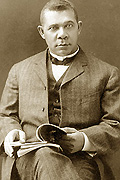The Wisdom of Booker T. Washington
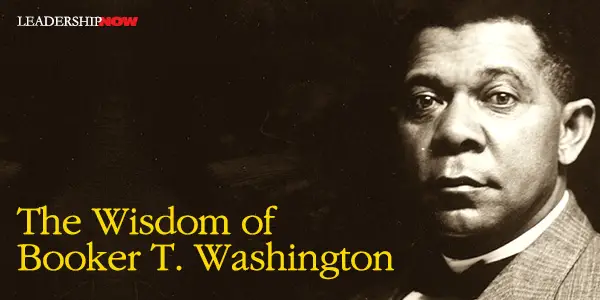 B
Booker T. Washington (1856–1915), the first African-American to receive an honorary degree from Harvard, was an American educator, author, orator, and political leader.
Washington was born into slavery to a slave mother and a white plantation owner in Franklin County, Virginia. He became a national figure with his Atlanta Address of 1895, in which he advocated vocational education for blacks as a way to improve race relations, making him a popular spokesperson for African-American citizens.
Through the support of wealthy philanthropists, he was able to raise funds to establish and operate thousands of small community schools and institutions of higher education for the betterment of blacks throughout the South. In 1901, his popular autobiography,
Up From Slavery, was first published and has been translated into many languages.
On Leadership
- Few things help an individual more than to place responsibility upon him, and to let him know that you trust him….Every individual responds to confidence. (Up from Slavery: An Autobiography)
- If you want to lift yourself up, lift up someone else.
- There are two ways of exerting one's strength: one is pushing down, the other is pulling up.
- Most leaders spend time trying to get others to think highly of them, when instead they should try to get their people to think more highly of themselves. It’s wonderful when the people believe in their leader.
It’s more wonderful when the leader believes in their people! You can’t hold a man down without staying down with him.
On Respect
- One man cannot hold another man down in the ditch without remaining down in the ditch with him.
- To hold a man down, you have to stay down with him.
- I will permit no man to narrow and degrade my soul by making me hate him. (Up from Slavery: An Autobiography)
On Work
- I have learned that success is to be measured not so much by the position that one has reached in life as by the obstacles which he has overcome while trying to succeed. (Up from Slavery: An Autobiography)
- Excellence is to do a common thing in an uncommon way.
- Nothing ever comes to one, that is worth having, except as a result of hard work. (Up from Slavery: An Autobiography)
On Execution
- We must reinforce argument with results.
On Friendship
- Associate yourself with people of good quality, for it is better to be alone than in bad company.
On Service
- My whole life has largely been one of surprises. I believe that any man’s life will be filled with constant, unexpected encouragements of this kind if he makes up his mind to do his level best each day of his life—that is, tries to make each day reach as nearly as possible the high-water mark of pure, unselfish, useful living. I pity the man, black or white, who has never experienced the joy and satisfaction that come to one by reason of an effort to assist in making someone else more useful and more happy. (Up from Slavery: An Autobiography)
- The longer I live and the more experience I have of the world, the more I am convinced that, after all, the one thing that is most worth living for—and dying for, if need be—is the opportunity of making someone else more happy and more useful. (Up from Slavery: An Autobiography)
On Success
- Success always leaves footprints.
- I have begun everything with the idea that I could succeed, and I never had much patience with the multitudes of people who are always ready to explain why one cannot succeed. (Up from Slavery: An Autobiography)
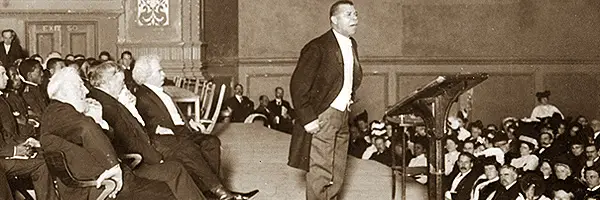
Booker T. Washington speaking to an audience at Carnegie Hall on the occasion of the Tuskegee Institute Silver Anniversary lecture in 1906. Mark Twain is seated on stage just behind Washington.
|
* * *

Like us on
Instagram and
Facebook for additional leadership and personal development ideas.

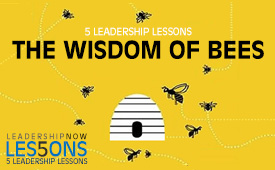
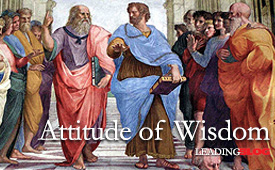
Posted by Michael McKinney at 12:44 AM
Permalink
| Comments (0)
| This post is about Leaders




